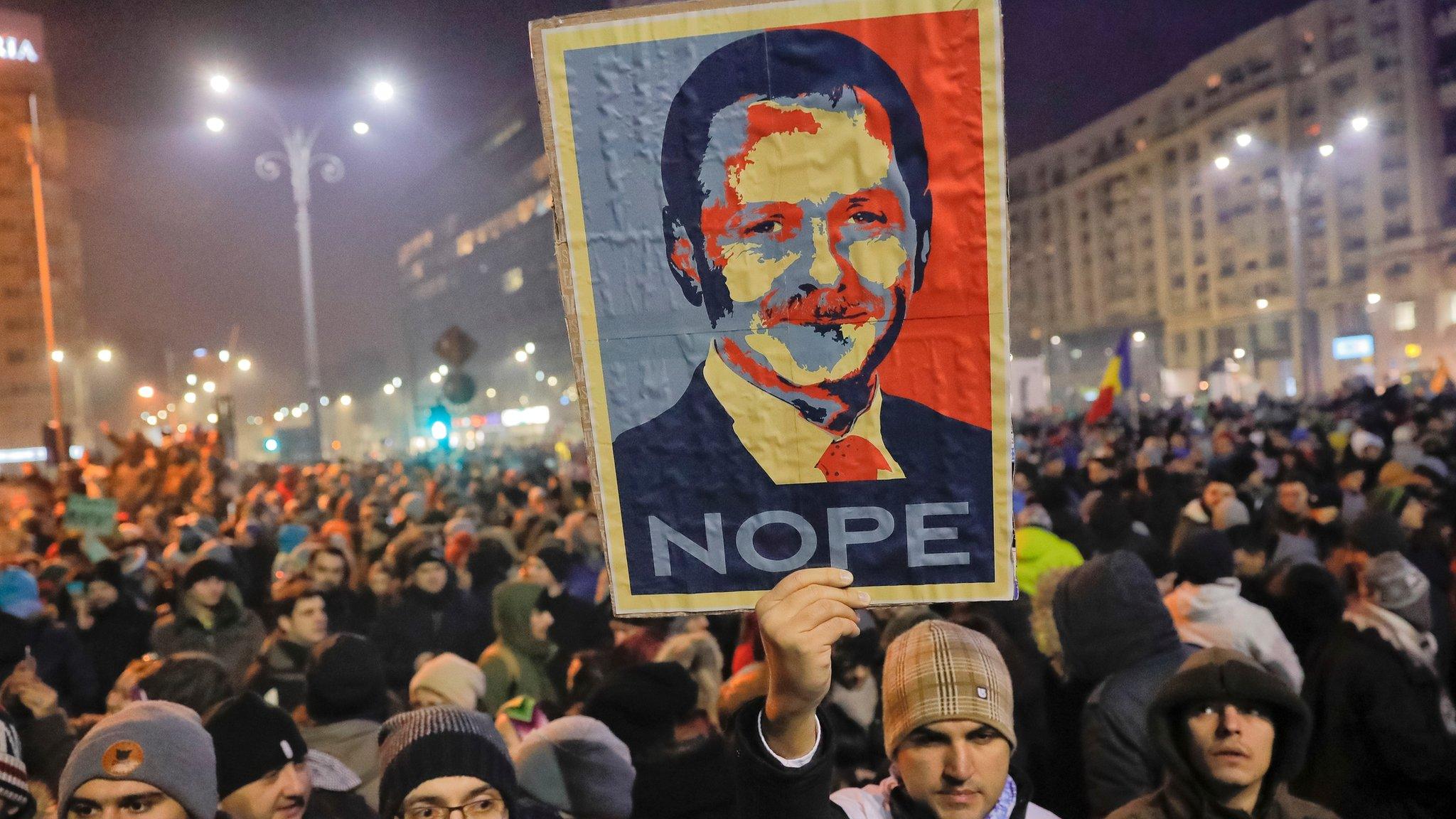Laura Codruta Kovesi: Romania's controversial anti-corruption star
- Published
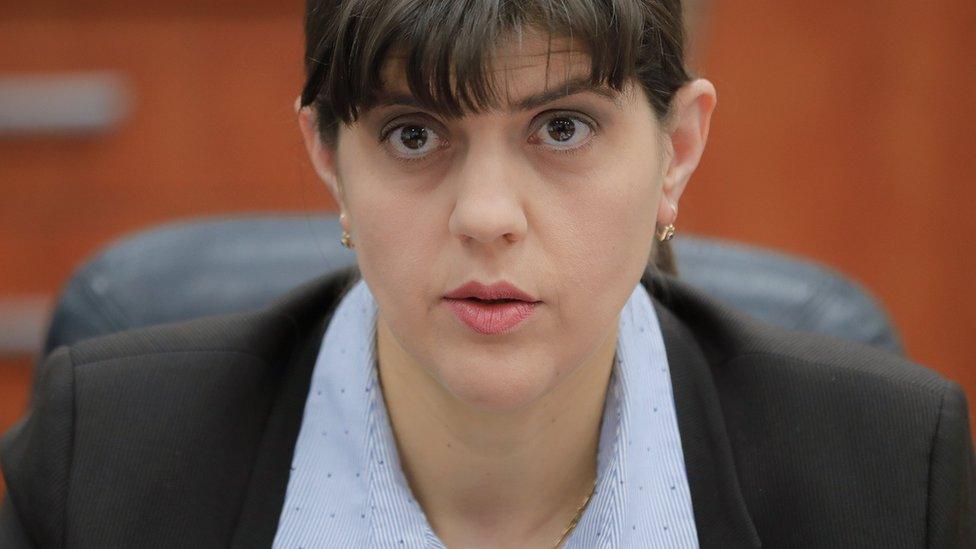
Ms Kovesi has led Romania's anti-corruption agency since 2013
Laura Codruta Kovesi has caused divisions in Romania.
Her supporters say she is a crusader against corruption, finally holding people once seen as untouchable to account. Critics, however, argue that the agency she leads has infringed on the civil liberties of citizens in a way not seen since communist times.
The 43-year-old chief prosecutor at Romania's Anti-Corruption Directorate, known locally as DNA, says she will not answer to them: "I will answer to the citizens."
The success of the DNA under her leadership has made Ms Kovesi a star. And she has vowed to continue with their job regardless of any lack of support.
But proposed changes to Romanian laws could cripple her work. Last week, the government withdrew a decree that would have softened anti-corruption laws, after they sparked huge street protests.
However, it is now is looking to parliament to enact similar measures.
'The public trusts us'
The DNA was created in 2002 to tackle corruption, an issue that seemed endemic in Romania. In 2007, the EU put the country - and Bulgaria - under a mechanism to monitor judicial reform and the fight against corruption.
But it was only when Ms Kovesi was made its chief, in 2013, that the body gained public support, with its investigations of a prime minister, former government ministers, media moguls, judges and prosecutors.
"Romanians trust in DNA is quite remarkable," she told the BBC in an interview.
The agency was trusted by twice as many people as the government, opinion polls suggested, and its support seemed to be higher among younger people.
"More and more people came and submitted complaints, they were willing to give witness statements regarding corruption cases. And all that because Romanian citizens noticed that the law is equal for everybody. This is what we do," she added.
The former basketball player and daughter of a prosecutor has been described by media as "softly-spoken" and "quiet". Ten years ago, she became Romania's youngest prosecutor general and the first woman ever to hold the office.
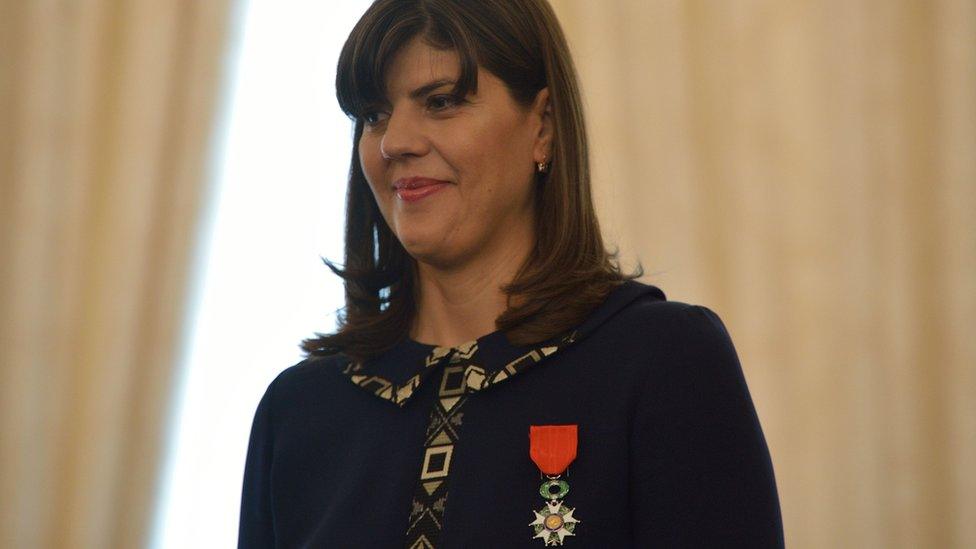
Ms Kovesi's work has been internationally acclaimed and she was awarded France's Legion of Honour last year
The DNA has launched some 1,170 prosecutions in the last three years, in cases which cost the state more than €1bn (£860m).
Her work has been internationally recognised - last year, she was awarded France's Legion of Honour.
Corruption decree: Strategic retreat or surrender for government?
But she also has her critics, who say she has become too powerful. and that the anti-corruption fervour has become a witch-hunt.
They argue her agency has unfairly targeted certain people and parties, teaming up with secret services and working hand in hand with judges, allegations she dismisses. "All the parties have members who were investigated by DNA."
They also criticise the use of wiretaps, saying it amounts to techniques used during communist times - something that she also rejects.
"When we talk about pre-trial arrest warrant, about an interception [wire-tapping] warrant, all these things cannot be done by the prosecutor without a warrant, an authorisation issued by judges. We cannot do that all by ourselves."
She adds that cases are pursued by merit and weight of evidence.
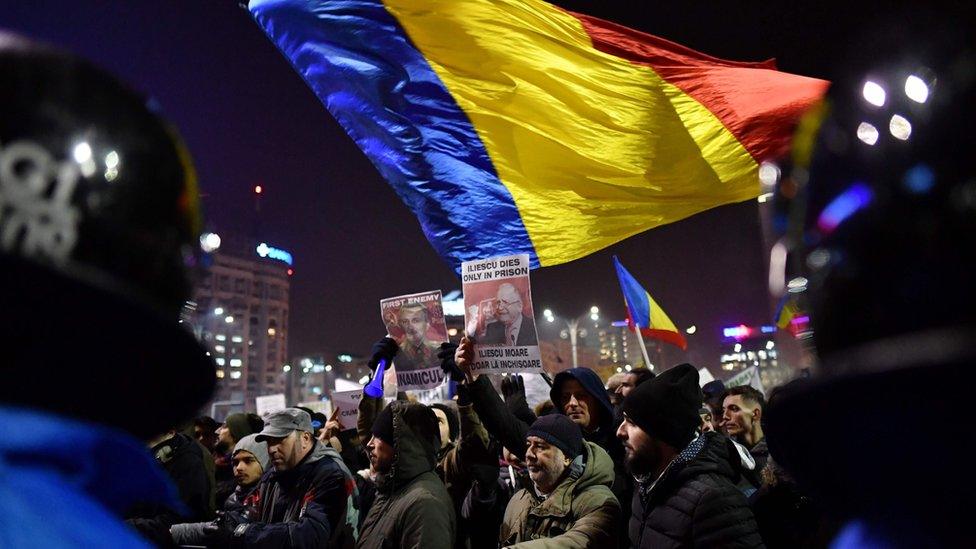
Thousands of people took to the streets in Romania against government decree
Ms Kovesi strongly opposed the recent government decree, that would have decriminalised some corruption offences and seen dozens of officials freed.
She estimated that the changes would have had an impact on one in three cases brought forward by the DNA.
"Starting from now, it will be a huge risk for the judicial system, in each day," she says.
"Because in each day we can find out about another modification, we can find out about the changes of our jurisdiction or maybe our office can be dissolved or not exist anymore."
- Published5 February 2017
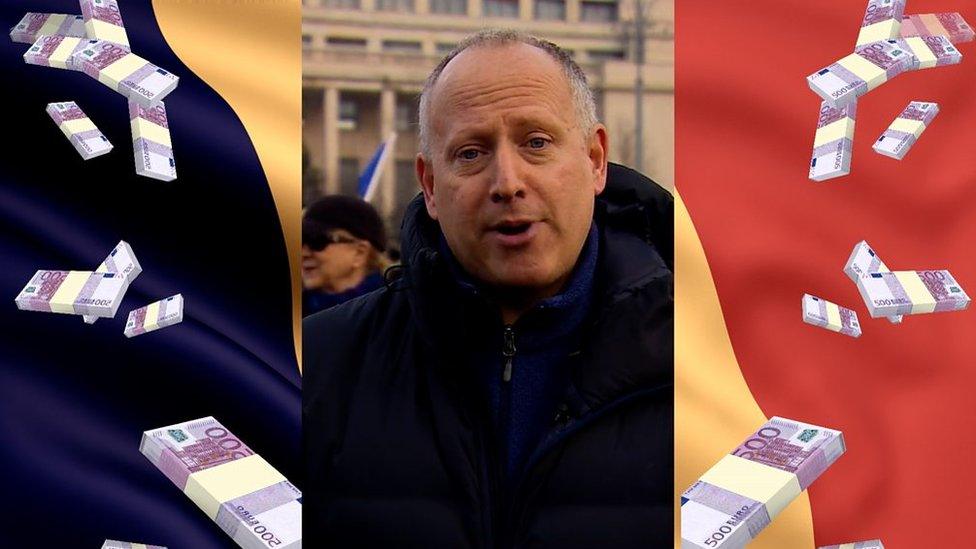
- Published5 February 2017

- Published4 February 2017
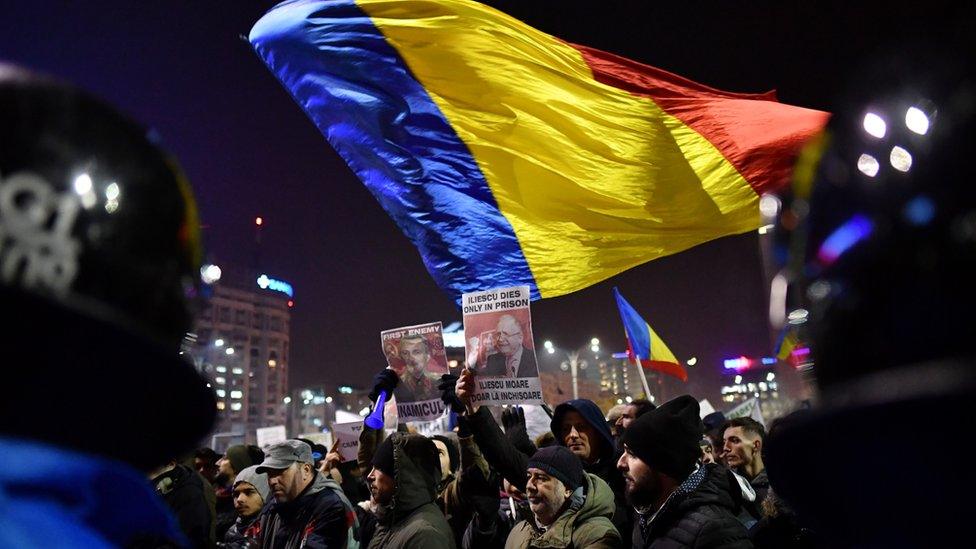
- Published2 February 2017

- Published1 February 2017
